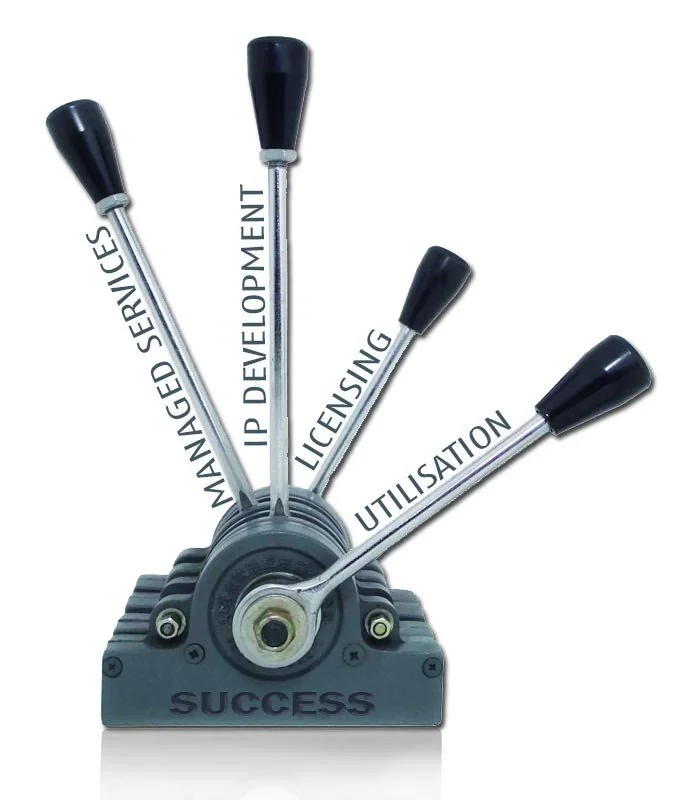Practice Management: Career Path, Utilisation and Visibility (Part 4 of 4)
This is my last post on People in my Dynamics 365 Practice Management series. In my previous blogs, I covered:
Key Roles in a Dynamics 365 Practice
Building and Working with a Team
Training and Mentoring Your People
This time, I would like to focus on career path, utilisation, and visibility of people in the Practice and the role they play in the success of your practice.
Career Path
As a practice lead, I always look at how I provide opportunities for someone who wants to progress in their career. Let's say you have a Functional BA that wants to become an Architect. Do you have a plan in place that will allow them to develop and fill any knowledge gaps where they are not as strong as they need to be, so they can continue to progress down that path?
I believe it is important to have career paths mapped out. Moreover, people coming into your organisation should know what steps they need to take and get the tools made available to them to be able to move and progress in their career.
Encourage people that want to become leaders in your team to get involved in the local User Group. Urge them to get involved with the committee. This way, you will see how they lead people they have no authority over.
Always try to be one step ahead. From a technology perspective, never be satisfied with the status quo. Instead, look at how you can constantly improve, how the practice can perform at a better level, and how you can offer more value to your customers.
Develop skills in understanding how people emotionally run. Invest in things like:
Time management (I recommend GTD)
Emotional Intelligence
Unconscious Bias
Leadership
Develop skills to understand how to handle stress
Often, these are not skills that people are born with, so people need to learn them.
Observe their leadership style. Sometimes people consider career advancement as having people report to them, “being the boss”—a false understanding of what leadership is. Sometimes people’s background and culture can have a massive effect on how they lead positively or negatively if they come from cultures that have a sense of Mana, “saving-face” or a “class” system brings its set of challenges.
Utilisation
Utilisation is a metric that is used to validate the performance of a consulting business/professional services business. However, with a Dynamics 365 practice, if the only lever that you have to pull is utilisation, you are going to struggle to keep quality staff. This is a flawed model because it creates angst amongst your people and is an underperforming economic model. They might feel that they are responsible for not being utilised enough. I am not saying we should throw utilisation out. It is one lever, and it is one measurement, but there's a range of other levers that can be used.
IP Development – This is not necessarily creating a new ISV solution that can complement Dynamics 365. It could be a range of predefined reports, processes, and methods of doing something—a solution that is extensible enough to use on many projects. Have a tool to capture IP in your organisation and a way to maximise the use of that IP across your projects including monetising it. With Microsoft opening AppSource, it also allows for solutions to be developed that extend the functionality of Dynamics 365.
Software Licensing – Consistently having licensing sales coming on is a real key indicator of the volume of projects that you are doing or the size of customer you are serving. Moreover, the beauty of licensing sales is that they are reoccurring and you can create a consistent revenue stream from it.
ManagedServices – One of its biggest benefits is it allows you to engage long term with your customer and stay connected to them. As challenges or changes come up inside that customer's workplace where the technology or their business evolves, you can constantly refine and add value to that organisation, therefore picking up additional project work.
Visibility
Visibility is a key area of staff development. This separates a General Dynamics 365 consultant from a real top Dynamics 365 consultant. In my opinion, there are three areas that are key to maintain visibility:
Visibility in the Community
User Groups
If we are to look at the community, one of the key tools that you have is User Groups.
I see so many consultants that go and passively engage in User Groups. They sit and listen, but they do not contribute and become visible.
There are leaders that form the committees and add a lot of value, which I commend. User Groups are a way to facilitate and develop one's skills particularly in the following ways:
Leadership skills – get involved in the committee for the user group and contribute
Public Speaking – start small with a 5-minute talk and work up to a 30 to 45-minute talk
Networking with like-minded people
Blogs
Write blogs and develop your blogging skill set. Aim to do a minimum of one blog a month consistently, and make sure the blog adds
value to the community. Not just regurgitating somebody else's information or Microsoft content, but adding to the pool of knowledge in the community by sharing:
Write blogs and develop your blogging skill set. Aim to do a minimum of one blog a month consistently, and make sure the blog adds value to the community. Not just regurgitating somebody else's information or Microsoft content, but adding to the pool of knowledge in the community by sharing:
Information you have learned
Solutions you have developed
Problems you have solved
I encourage every practice to implement a blog for the practice and set some minimum expectations on your team members to write. Team blogging allows me as a practice leader to understand the skillset of my team when they have to articulate their knowledge. You see how strong or not they are when it comes to their skill sets. It also teaches staff to research, to solve problems, and then to articulate that in writing. Also skills of a great consultant.
I find blogging does not come naturally to 99% of people. It certainly doesn't come naturally to me. I am dyslexic, and I cannot spell. I hate writing. Moreover, every time I write, it is a massive chore to me. However, I know it refines my ideas and my thinking. In my opinion, it is an important value and skill set. In addition, it creates a strong level of visibility and accountability to the wider Dynamics 365 community.
I have already touched on Yammer in another post, and the importance of encouraging staff to comment on other people's Yammer posts, add their knowledge to that internal pool of information, but also to ask questions. If you are asking questions on Yammer, you are visible. Moreover, the more you ask, the more it is showing your desire to learn, understand and develop, and add value to the team.
From my experience, my top consultants never struggle to have projects to work on because they are engaging inside the customers they are working for. They are uncovering new opportunities or leads to pass across to the sales team. When they work with a customer, they network with the staff at that company outside of the project they are working on. They proactively look for problems in the customer business that we can solve. Furthermore, they become a strategic advisor to the customer and look for every opportunity to add value. They get to know the admin staff, the people on reception and the people with influence, the people in the lunch room.
I am not asking everybody to be a salesperson, but I am asking everybody to be an opportunity spotter. It is a responsibility of every consultant to uncover opportunities at the customer beyond the project that they are currently working on and to refer them to Sales.
Conclusion
Let me stress once more that the success of your practice relies on people. So, I would like to close this series with these words:
You need to keep expanding and stretching yourself and your people if you are going to play at the top of this game. If you treat people as resources and use them to gain advantage and not invest in them, good luck with the results.
Please let me know your thoughts.




